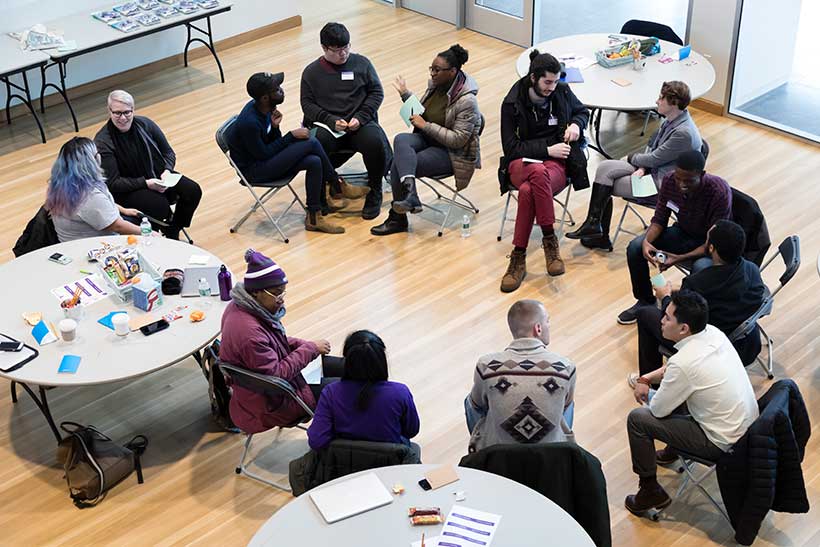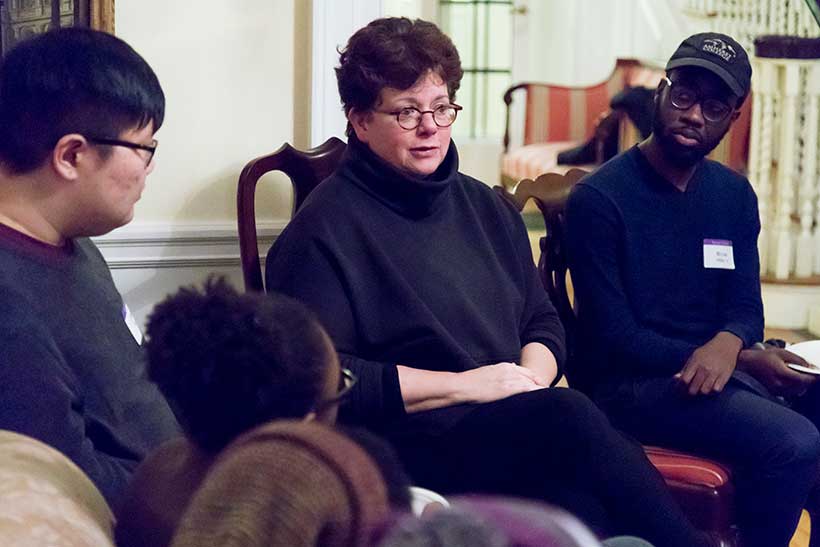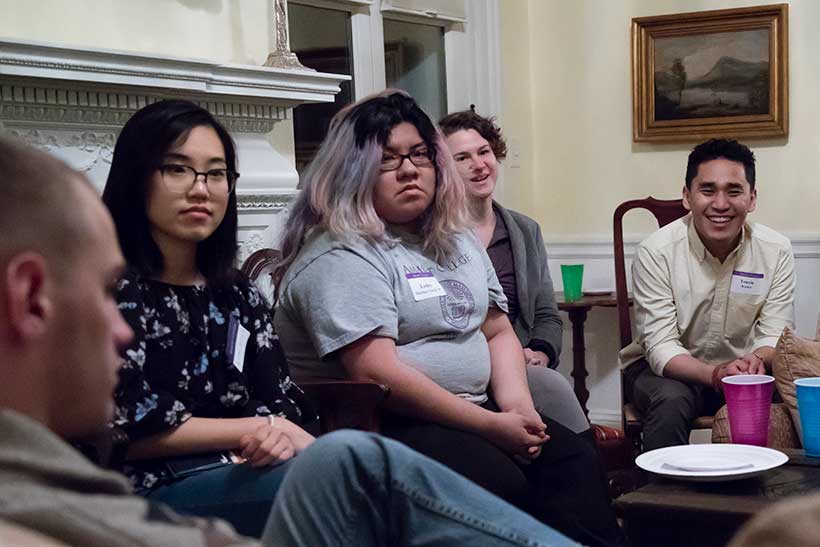
One sleepy morning during Interterm, a small but steady stream of students trickled into a campus meeting room, brushing snowflakes from their coats and stomping slush from their boots.
Because of the adverse weather conditions, the College had delayed opening until 11 a.m. Yet members of this group had tromped through the snow at 9:30 a.m. to hear Chloe McKenzie ’14 speak about financial literacy.
Rather than use her allotted hour to talk about balancing a checkbook or creating a household budget, McKenzie discussed inclusive economies. And leveraging finance as a source of activism. And stock options. And “dismantling the structures that create and perpetuate income inequality.”
“Cool, right?” said McKenzie, founder, president and CEO of BlackFem Inc., an organization that provides financial services and education to underserved communities of color. “Those are the things your investments can do for you.”
McKenzie’s talk was one event in the Next Generation Leadership Institute, an intensive program held Jan. 14-18 for “first-generation and/or low-income Amherst students to cultivate and highlight existing social and cultural capital in their personal and professional lives,” according to the organizers.

The gathering was conceived of and co-coordinated by Casey Jo Dufresne, program director for campus engagement at the Loeb Center for Career Exploration and Planning, and Tenzin Kunor, associate director of diversity and leadership in the Office of Campus Diversity and Student Leadership. The Institute included sessions on communications skills, identity and class and more. It also featured a daylong visit to the Massachusetts Museum of Contemporary Art and a meal at a local restaurant.
DuFresne said the Institute came after requests for more programming and support for first-generation college students.
“Every student comes here with a toolbox of skills,” she says, “and every student needs different tools or their particular tools sharpened. The population we serve might need a more specialized set of tools, or direction on how to use their particular tools within our community. My goal was that the Institute do some or all of those things.”
The program is one of several at the College aimed at supporting first-generation students and those from low-income families. In his role, Kunor has launched receptions at Commencement and Orientation for the students and their families, as well as summer programs in the sciences and humanities. He has also coordinated multiple get-togethers with first-gen staffers and cultivated a more formal relationship with QuestBridge, a nonprofit that helps high schoolers navigate the college application process, and the student-run First-Gen Association.
This work has enabled him to see the value in bringing together a community for the students, he said. As such, one of his goals for the Institute was to create a space to make connections with each other and network with staff, faculty and alumni—most of whom were the first in their families to go to college or themselves grew up in low-income households.
“My biggest hope is that the students left with a sense of identity and pride when it comes to their own experiences, and to know that there are students, faculty, staff and alumni who share similar experiences and identities too.”

Bryan Miller ’19, who serves on the staff of the Office of Campus Diversity and Student Leadership, helped organize and facilitate the event as a campus engagement fellow. He also took part and said he “profited from it immensely.”
He echoed Kunor’s thoughts about community, adding, “I also hope that the students will not see their identities [as first-generation or low-income students] as liabilities/disabilities but, instead, as testimony to their resilience and success.”
“College for us is uncharted territory,” he explained. “In many instances, we do not have friends or family who know the ins and outs of college life. I think the Institute, in some ways, might have helped us find our own family here on campus.”